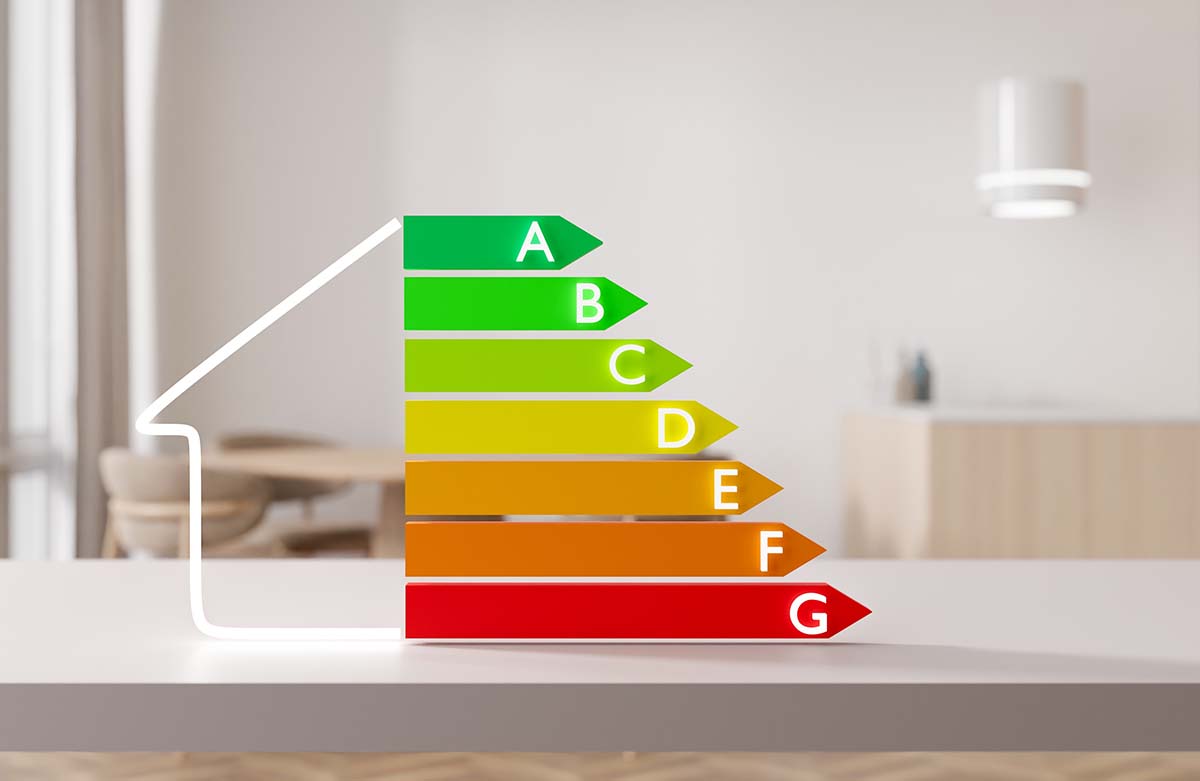National Retrofit Hub Publish Insights On EPC Reform
The National Retrofit Hub has published a new document, titled ‘What is needed from Energy Performance Certificate (EPC) reform to enable retrofit at scale?’. The document covers current industry insights on EPC reform and aims to provide more awareness of the current discussions surrounding EPCs and the recommendations already on the table.

What Is An Energy Performance Certificate?
An Energy Performance Certificate (EPC) is a legally valid document that provides an energy efficiency rating (displayed on an A-G scale) in relation to a property’s running costs. This rating will take into account the potential energy performance of the property and its services.
The EPC will also show:
✅ A breakdown of a property’s energy performance.
✅ Its environmental impact.
✅ Recommendations for improvements.
✅ Estimated energy use alongside potential savings.
EPCs play a crucial role in retrofitting the UK’s buildings. They enable stakeholders to assess the performance of a building stock and can inform policy, finance and household decision making.
MORE INFORMATION >Who Is The National Retrofit Hub?
The National Retrofit Hub is a non-profit collaborative organisation working with the industry to enable the delivery of housing retrofit across the UK. The Hub was officially launched in March 2023 and is funded by sponsorship from Innovate UK, the UK’s national innovation agency, and contributions from many organisations across the sector.
The purpose of the National Retrofit Hub is to engage with retrofit stakeholders to gather information and identify gaps in activity, enhance industry efforts and enable the application of best practices through the sharing of knowledge, and enable collective leadership, good governance and policy engagement.
Insights On EPC Reform:
In recent years, the call for EPC reform has steadily increased. A number of organisations across the industry have highlighted issues with EPCs and have made recommendations for positive change. This includes Elmhurst Energy’s own call for EPC Reform within the Elmhurst Almanac – calling for the EPC to give equal focus to energy consumption, cost and carbon emissions.
The recently released document from the National Retrofit Hub explores key insights into EPC reform. To create this document, the Hub conducted a literature review of the recommendations for reform that already exist in the industry, as well as held an online workshop, where participants were presented with current ideas on reform and provided constructive feedback.
The insights on EPC reform, presented within the document, include the following:
Metrics:
Current feedback from the industry suggests that metrics are confusing, poorly suited to informing government policy and cannot be compared to real-world energy use. To improve the EPC, new metrics should be introduced that cover fabric rating, cost rating, heating system type, climate impact metrics and more. Workshop participants also felt that in-use performance data should be included within an EPC to more accurately understand current energy use.
Upgrade recommendations included within EPCs:
The current recommendations provided on EPCs are seen to have a number of issues, including inaccurate and misleading estimated costs, no reference to maintenance, no reference to health and wellbeing and no context of a whole-house approach. The improvements to EPC recommendations include providing more accurate costs, aligning recommendations with decarbonisation goals, signposting to expert advice and more.
Validity period:
EPCs are currently valid for 10 years, or until a new EPC is produced. The workshop participants, and the wider industry, believe that this validity period should be reduced to 5 years and that more ‘trigger points’ should be introduced. This would create more instances where an updated EPC is required, for example anytime work is conducted or a building transaction takes place.
EPC data access:
EPC data should be more accessible to the retrofit industry, landlords, homeowners and service providers. The benefits of this would include greater quality control (to see patterns or anomalies), better customer engagement, insights on the impact on property valuation, better transparency on assumptions and much more. Some workshop participants also suggested that EPC data could be accessed by a digital building logbook, where the householder has control of how the data is accessed.
Consumer awareness:
A survey by Santander revealed that 58% of consumers do not know what an EPC is. Ideas to increase consumer awareness include public campaigns, early-years education, improved accuracy of the EPC to develop trust and many more. The benefits of greater consumer awareness include incentivising consumers to lower their carbon footprint, creating greater awareness of the costs associated with powering homes and incentivising landlords and sellers to make performance upgrades.
Scope and purpose of EPCs:
Workshop participants reflected on what else EPCs could be used for. The recommendations here include helping people understand their homes in the context of others, driving climate-positive lending, helping to inform house buying decisions and many more. In addition to this, there is also the suggestion to create different ‘levels’ of EPCs, depending on the amount and quality of the data, however many participants felt that this created a further risk of confusion.
Elmhurst Thoughts
Elmhurst’s view on EPC reform largely aligns with the insights and findings provided within the Retrofit Hub’s newly published document and we support the Hub’s aim to increase awareness on this important topic.
Elmhurst believes that EPCs must change to help drive policies for cutting carbon emissions. The EPC should be reformed to show the ‘three Cs’: energy consumption, energy cost, and carbon emissions. In addition, each EPC should be renewed every three years, with re-assessment and re-issue required whenever there is a change to a building that impacts its energy performance.
Doing this would mean EPCs are able to support energy-efficient retrofit, reduce dependence on the grid, and inform net zero policies from government.
Elmhurst Almanac 2024
The Elmhurst Almanac provides a round up of the significant industry developments and outlines Elmhurst’s thoughts and call to actions on EPC reform in more depth.
READ NOW >
Further Resources:
For more information on the National Retrofit Hub and the recently released document covering insights into EPC reform, please click the following links:
- National Retrofit Hub Website: https://nationalretrofithub.org.uk/
- National Retrofit Hub: What I needed from EPC reform to enable retrofit at scale? – NRH-EPC-Reform-Retrofit-at-Scale.pdf (nationalretrofithub.org.uk)
